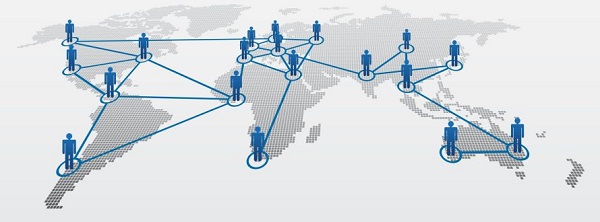Related Articles
Building Trust with a Virtual Team
Few would argue about the importance of “Trust” in teams. We know it is the foundational principle to all relationships and a key factor in high performance… but what now? How do we bring this all essential trust with us?
It’s not easy in this time of social distancing, office closures, and widespread work-from-home mandates, with many organisations learning how to function virtually on the fly. We have all been catapulted into a full-time virtual team environment overnight and are barely getting the basics right, so what can we do to bolster our teams and organisations to weather out this storm.
There has never been a more critical time for our team interaction and communications to engage rather than defend. Our leaders need to feel like they are not carrying this burden on their own, we need to find a new way of being together virtually and we need to work towards a new future. Trust is our one true ally along this new road.
.
Tips & Strategies for Building Trust into Virtual Teams

I aim to provide some useful tips and techniques for instilling trust and a way to have real conversations at this critical time, in the hope that this will build something robust and durable from which to move forward with. Leadership communication is difficult, and our relationships need to be up to it. So be mindful of the tech and the people behind it. Agree etiquette and mix it up, there are plenty of ways we can get our work completed together.
.
1. Generation Gaps, Personalities & Cultures
Consider the challenges this all new virtual way of life, will affect the different generations, personalities and cultures within your team.
You may need to offer additional training and support to the older generations who are less tech savvy and less comfortable using this medium of communication. Create a test bed where they can play around with it and offer plenty of training and support.
Also consider the “Introverts” and “Extroverts” in your team. People are already reporting “Death by Video Conferencing”. Consider that your introvert’s will be physically and emotional drained by back to back video conferencing calls. Extroverts may not mind so much but in their case will be yearning for human interaction and as a result energy, focus and productivity levels can drop.
Recognising the diverse personalities, age, backgrounds and cultures of team members and respecting them is key. Trust develops when team members feel accepted, irrespective of their cultural beliefs and the virtual team environment is void of hostility and disrespect. Being mindful of who you are interacting with on a call and being sensitive to what is going on in the background for them will absolutely help to promote understanding, empathy and trust.
.
2. The All Essential Communication

Trust and communication are inextricably woven together. Trust is communication in how we make each other feel listened to, understood, informed, valued and motivated. Therefore, there has never been a more important time to put a plan around how to build trust, understanding and inclusion for all virtual team members.
Also, let’s throw in the bombshell, that one method may energise one character and drain the other.
Being thrown into remote working has led many business leaders into unknown territory. Some have reacted by over rotating and micromanaging their people’s movements and productivity levels. I have even heard of one organisation, who are asking their staff to record their work flows every 30 minutes and send in for review. This approach will quickly erode trust within a team.
Use this as an opportunity to define a communication strategy or charter including all virtual team members – promoting openness, transparency, inclusion, total clarity on team goals and objectives and a forum for asking questions and sharing ideas.
What does success look like?
Create a dedicated place for communication, whether among employees in the same department or freelancers working on the same project. An internal communication tool (such as Slack) can allow for communication across many channels. Future employees can see the answers to commonly asked questions, have idea generation sessions and virtual coffee chats.
No matter what tool you decide to use, as long as there’s a way to foster 2-way communication, remote workers won’t feel isolated from one another.
.
3. Teamwork and Participation

Interactive and collaborative teamwork is also a key factor in building trust. This typically involves knowledge sharing, team identity, common purpose and goals and a whole big bag of humour thrown in for good measure.
Get your team members to discuss what is working and what is not regularly. Agree a virtual team charter driven by values and purpose by which to hold each other accountable. Facilitate opportunities to get to know people better – there is real power in discovering commonality when building relationships.
Have some fun together, the new night out is now a night in. Have lunch together, movie nights, comedy nights, styling parties and good old chin wags. Humour and connection bring people out of themselves, the barriers come down, the communication starts to free flow which inevitably leads to people contributing and participating at a different level.
.
A future history lesson
We can learn great things in this unprecedented time of life. A friend recently said to me, we are in the middle of a future history lesson. All our businesses will look and feel different after this, with most of us extending our new virtual capacities to our customers and workplaces.
Yet, nothing can compensate for real human interaction. We are social animals, wired to connect and relationships are our primary driver. Trusted relationships provide context for our communication, they give meaning to our words and good relationships are the cornerstone of happiness.
We are now globalised like never before. I truly hope we hold onto this sense of togetherness and take the good parts with us.
See you on the other side.





